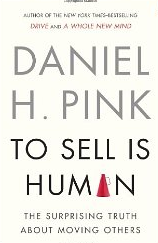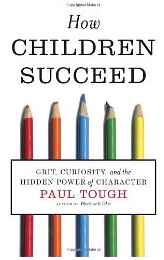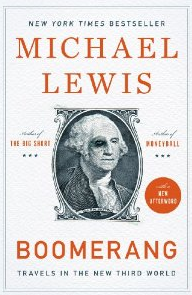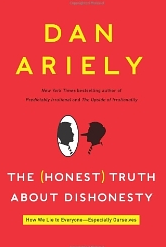I recently finished reading “To Sell Is Human: The Surprising Truth About Moving Others” by Daniel H. Pink. The quotes I found most interesting are below. As always, if you like the quotes, please buy the book here.
 “One of the most effective ways of moving others is to uncover challenges they may not know they have.” (5)
“One of the most effective ways of moving others is to uncover challenges they may not know they have.” (5)
“In just three years, Kickstarter surpassed the U.S. National Endowment for the Arts as the largest backer of arts projects in the United States.” (31)
“A world of flat organizations and tumultuous business conditions – and that’s our world – punishes fixed skills and prizes elastic ones. What an individual does day to day on the job now must stretch across functional boundaries. Designers analyze. Analysts design. Marketers create. Creators market. And when the next technologies emerge and current business models collapse, those skills will need to stretch again in different directions.” (36)
“People who don’t have the power or authority from their job title have to find other ways to exert power.” (36)
“Start your encounters with the assumption that you’re in a position of lower power. That will help you see the other side’s perspective more accurately, which, in turn, will help you move them.” (73)
“A Dutch study found that waitresses who repeated diners’ orders word for word earned 70 percent more tips than those who paraphrased orders – and that customers with servers who mimicked were more satisfied with their dining experience.” (77)
“Several studies have shown that when restaurant servers touch patrons lightly on the arm or shoulder, diners leave larger tips.” (78)
“Yes, positive self-talk is generally more effective than negative self-talk. But the most effective self-talk of all doesn’t merely shift emotions. It shifts linguistic categories. It moves from making statements to asking questions.” (101)
“Researchers found that inserting a mild profanity like “damn” into a speech increases the persuasiveness of the speech and listeners’ perception of the speaker’s intensity.” (106)
“Once positive emotions outnumbered negative emotions by 3 to 1 – that is for every three instances of feeling gratitude, interest or contentment, they experienced only one instance of anger, guilt, or embarrassment – people generally floursihed. Those below that ratio usually did not.” (108)
“Optimism, it turns out, isn’t a hollow sentiment. It’s a catalyst that can stir persistence, steady us during challenges, and stoke the confidence that we can influence our surroundings.” (111)
“When something bad occurs, ask yourself three questions – and come up with an intelligent way to answer each one “no”;
1. Is this permanent?
2. Is this pervasive?
3. Is this personal?
The more you explain bad events as temporary, specific, and external, the more likely you are to persist even in the face of adversity.” (119)
“Research has shown that “thinking about the future self elicits neural activation patterns that are similar to neural activation patterns elicited by thinking about a stranger.” (126)
“If I know precisely what my problem is, I can often find the information I need to make my decision without any assistance. The services of others are far more valuable when I’m mistaken, confused, or completely clueless about my true problem. In those situations, the ability to move others hinges less on problem solving than on problem finding.” (127)
“The quality of the problem that is found is a forerunner of the quality of the solution that is attained…” Gretzels concluded. “It is in fact the discovery and creation of problems rather than any superior knowledge, technical skill, or craftsmanship, that often sets the creative person apart from others in his field.” (129)
“People most disposed to creative breakthroughs in art, science, or any endeavor tend to be problem finders. These people sort through vast amounts of information and inputs, often from multiple disciplines; experiment with a variety of different approaches; are willing to switch directions in the course of a project; and often take longer than their counterparts to complete their work.” (129)
“In the past, the best salespeople were adept at accessing information. Today, they must be skilled in curating it.” (132)
“In the past, the best salespeople were skilled at answering questions. Today, they must be good at asking questions.” (132)
“We often understand something better when we see it in comparison with something else than when we see it in isolation.” (134)
“Adding an inexpensive item to a product offering can lead to a decline in consumers’ willingness to pay.” (136)
“Several researchers have shown that people derive much greater satisfaction from purchasing experiences than they do from purchasing goods.” (136)
“As time goes by, we tend to forget the small-level annoyances and remember the higher-level joys. Experiences also give us something to talk about and stories to tell, which can help us connect with others and deepen our own identities, both of which boost satisfaction.” (137)
“Framing a sale in experiential terms is more likely to lead to satisfied customers and repeat business.” (137)
“In many cases the people who’d gotten that small dose of negative information were more likely to purchase the boots than those who’d received the exclusively positive information.” (139)
“Researched dubbed this phenomenon the “blemishing effect” – where “adding a minor negative detail in an otherwise positive description of a target can give that description a more positive impact.” But the blemishing effect seems to operate only under two circumstances. First, the people processing the information must be in what the researchers call a “low effort” state. That is, instead of focusing resolutely on the decision, they’re proceeding with a little less effort – perhaps because they’re busy or distracted. Second, the negative information must follow the positive information, not the reverse.” (139)
“The core logic is that when individuals encounter weak negative information after already having received positive information, the weak negative information ironically highlights or increases the salience of the positive information.” (139)
“Researchers tested two different Facebook ads for the same comedian. Half the ads said the comedian, Kevin Shea, “Could be the next big thing.” The other half said, “He is the next big thing.” The first ad generated far more click-throughs and likes than the second.” (140)
“People often find potential more interesting than accomplishment because it’s more uncertain, the researchers argue. That uncertainty can lead people to think more deeply about the person they’re evaluating – and the more intensive processing that requires can lead to generating more and better reasons why the person is a good choice.” (141)
“Rational questions are ineffective for motivating resistant people. Instead I’ve found that irrational questions actually motivate people better.” (145)
“In the old days, our challenge was accessing information. These days, our challenge is curating it.” (147)
“Their central finding was that the success of a pitch depends as much on the catcher as the pitcher… The catchers took passion, wit, and quirkiness as positive cues – and slickness, trying too hard, and offering lots of different ideas as negative ones. If the catcher categorized the pitcher as “uncreative” in the first few minutes, the meeting was essentially over even if it had not actually ended.” (157)
“Once the catcher feels like a creative collaborator, the odds of rejection diminish.” (158)
“The purpose of a pitch isn’t necessarily to move others immediately to adopt your idea. The purpose is to offer something so compelling that it begins a conversation, brings the other person in as a participant, and eventually arrives at an outcome that appeals to both of you. In a world where buyers have ample information and an array of choices, the pitch is often the first word, but it’s rarely the last.” (158)
“Reducing your point to that single word demands discipline and forces clarity. Choose the proper word, and the rest can fall into place.” (161)
“Several scholars have found that questions can outperform statements in persuading others.” (162)
“The researchers also found that when the underlying arguments were weak, presenting them in the interrogative form had a negative effect.” (162)
“By making people work just a little harder, question pitches prompt people to come up with their own reasons for agreeing (or not). And when people summon their own reasons for believing something, they endorse the belief more strongly and become more likely to act on it.” (163)
“Summarizing your main point with a rhyme gives council members a way to talk about your proposal when they deliberate.” (166)
“Pitches that rhyme are more sublime.” (166)
“Utility worked better when recipients had lots of email, but “curiosity drove attention to email under conditions of low demand.” (167)
“Your email subject line should be either obviously useful (Found the best & cheapest photocopier) or mysteriously intriguing (A photocopy breakthrough!), but probably not both (The Canon IR5255 is a photocopy breakthrough). And considering the volume of email most people contend with, usefulness will often trump intrigue, although tapping recipients’ inherent curiosity, in the form of a provocative or even blank subject line, can be surprisingly effective in some circumstances.” (167)
“Readers assigned the highest ratings to tweets that asked questions of followers.” (169)
“A deep structure of storytelling involves six sequential circumstances: Once upon a time _. Every day, _. One day _. Because of that, _. Because of that _. Until finally _.” (171)
“During pitches/presentations: Go first if you’re the incumbent, last if you’re the challenger. The market leader is more likely to get selected if it presents first. But for a challenger, the best spot, by far, is to present last… The middle is the place you’re most likely to get run over.” (182)
“Granular numbers are more credible than coarse numbers. (i.e. Use 120 minutes instead of 2 hours.)” (182)
“Listening without some degree of intimacy isn’t really listening. It’s passive and transactional rather than active and engaged. Genuine listening is a bit like driving on a rain-slicked highway. Speed kills.” (191)
“Those who say ‘yes” are rewarded by the adventures they have. Those who say ‘no’ are rewarded by the safety they attain.” (202)
“Health and safety messages should focus not on the self, but rather on the target group that is perceived as most vulnerable.” (217)
“Another group of university call center employees read stories for five minutes from university alumni who’d received scholarships funded by the money this call center had raised describing how those scholarships had helped them before making calls. This group more than doubled the pledges they raised.” (218)
“The successful seller must feel some commitment that his product offers mankind as much altruistic benefit as it yields the seller in money.” (220)
If you liked the quotes, please buy the book here.





